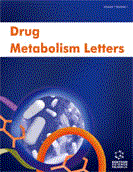Abstract
In vitro inhibition assays are used to screen new chemical entities (NCEs) for inhibition studies by using human liver microsomes. High-throughput inhibition assays using pooling methods have been developed to keep pace with screening requirements at the lead ADME stage. This method can determine IC50 NCEs using microsomes from various organs from any species. A cassette analysis inhibition assay for five of the major CYP enzymes (phenacetin for CYP1A2, diclofenac for CYP2C9, (S)-mephenytoin for CYP2C19, bufurarol for CYP2D6 and midazolam, nifedipine and atorvastatin for CYP3A4) in pooled human liver microsomes using ultraperformance liquid chromatography tandem mass spectrometry (LC/MS/MS) were developed. The major metabolites of seven CYP-specific probe substrates for the five P450 isoforms were monitored and quantified to determine IC50 values. Human liver microsomal incubation samples at each test compound concentration were combined and analyzed simultaneously by the LC/MS/MS method. The incubation was performed using the selective CYP inhibitors for each isoform: fluvoxamine (CYP1A2), sulphaphenazole (CYP2C9), ticlopidine (CYP2C19), quinidine (CYP2D6), and Ketoconazole (CYP3A4). Similar IC50 results were obtained using the cassette analysis and discrete analysis method. The IC50 values determined for typical CYP inhibitors were reproducible and consistent with those reported in the literature. The assay was fully automated in 96 well plate formats using Microlab 4000 series (Hamilton) coupled with two termomixer comfort (Eppendorf). An overall 70% time savings was achieved by pooling four isoforms samples (1A2, 2C9, 2C19 and 2D6) into one sample and also by pooling three CYP 3A4 substrate samples (MDZ, ATR, NIF) into one sample. Cassette analysis minimized the number of injections on LC/MS/MS analysis which results in a decrease in the LC/MS/MS analysis time.
Keywords: Cytochrome P450, Inhibition, High-throughput, Liquid chromatography-mass spectrometry
 34
34










